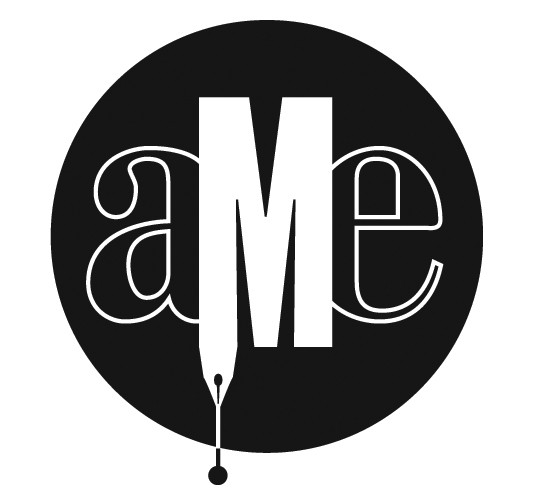 At Self-Publishing Review we receive a lot of books for review. By far the greatest number of books that come directly from a publicist come from Author Marketing Experts. Here CEO Penny Sansevieri and COO Paula Krapf talk about what self-published writers can expect from hiring a publicist.
At Self-Publishing Review we receive a lot of books for review. By far the greatest number of books that come directly from a publicist come from Author Marketing Experts. Here CEO Penny Sansevieri and COO Paula Krapf talk about what self-published writers can expect from hiring a publicist.
Self-Publishing Review: How long has Author Marketing Experts been at work?
Penny Sansevieri: We’ve been doing this for over ten years.
SPR: How many books do you normally promote a year?
Penny: That’s a tough question to answer but suffice it to say: a lot. Since we also offer one-on-one coaching (for authors who have the time and patience to do their own marketing) we’re able to work with many more authors. We’re also careful about who we take on, we must resonate with the book we’re promoting and all submissions come through my desk first before we determine whether we can put our marketing muscle behind them.
SPR: What’s the greatest challenge promoting self-published authors?
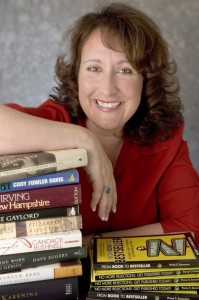 Penny: Well, there are a few actually. I think the industry is saturated in general. With around 1,000 books published each day we’re seeing a lot of competition. Now these books likely won’t *all* be in your genre but they’re still jockeying for the same shelf space in bookstores, airtime on radio, review space, etc. The other challenge is that authors often don’t realize how heavy their competition is and don’t take the time needed to vet their book. Remember that your book is your resume. You’d never send a resume as a hopeful candidate that was riddled with typos, or inaccurate in any way. You should hold your book to the same standards.
Penny: Well, there are a few actually. I think the industry is saturated in general. With around 1,000 books published each day we’re seeing a lot of competition. Now these books likely won’t *all* be in your genre but they’re still jockeying for the same shelf space in bookstores, airtime on radio, review space, etc. The other challenge is that authors often don’t realize how heavy their competition is and don’t take the time needed to vet their book. Remember that your book is your resume. You’d never send a resume as a hopeful candidate that was riddled with typos, or inaccurate in any way. You should hold your book to the same standards.
Paula Krapf: I would add that those un-vetted books create a problem for the self-published authors who do have quality books. There are some reviewers and sites who will not consider self-published books *at all.* It’s already competitive out there, so losing some opportunities right off the bat makes it that much more challenging (I’m not saying impossible, however, just challenging). My challenge is finding the reviewers who are willing to consider self-published books.
SPR: Do you mention that books are self-published in your marketing materials, or do you market the books just as if they are traditionally published?
Penny: No, we generally don’t mention it. We market books not on how they’re published but on what message they convey, the author’s platform or a current news tie-in. I don’t recommend shouting from the rooftops that your book is self-published, not because of the any perceived stigma but because savvy reviewers will know and pointing to it in your marketing materials screams amateur.
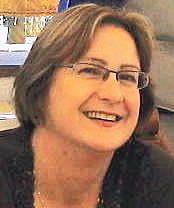 Paula: I don’t mention it up front. For one thing, I don’t offer self-published books to reviewers or sites who won’t consider those books. If they are open to self-published books, then it doesn’t matter, they are considering the book and topic as a whole. We did have one author who proudly announced she was self-published – it was really part of her pitch, that her dream was to write a book and if the traditional publishers wouldn’t take her, she would publish on her own. She had a strong book so the pitch went over well with the reviewers who accepted copies.
Paula: I don’t mention it up front. For one thing, I don’t offer self-published books to reviewers or sites who won’t consider those books. If they are open to self-published books, then it doesn’t matter, they are considering the book and topic as a whole. We did have one author who proudly announced she was self-published – it was really part of her pitch, that her dream was to write a book and if the traditional publishers wouldn’t take her, she would publish on her own. She had a strong book so the pitch went over well with the reviewers who accepted copies.
SPR: It’s said that non-fiction self-publishing is much easier to market than fiction. Have you had success with both?
Penny: Yes we have, but that’s largely thanks to a wildly creative team. Regardless of your genre, you *must* be creative in your marketing. Also, expanding our work on the Internet has allowed us to take on more fiction than we used to. The Internet is so much more “forgiving” of fiction – it’s much easier to find an audience there than to try and fight your way into the diminishing offline review space.
Paula: I don’t agree that marketing fiction is more difficult. I think there can be more work involved, because you really have to do your homework, learn where you can pitch your book and stay on top of things. We’ve had some campaigns for self-published fiction that went very well.
SPR: Do you turn away authors who may have a tougher time finding publicity, or do you take everyone on?
Penny: We don’t take on everyone, we can’t – we’re also not right for every author that comes to us. We look for good stories, topical issues, quality writing and an author’s willingness to be engaged in their own success. I think regardless of how you promote, this is very important. You *must* be engaged in your own success.
SPR: How does the process work when you take on a new author to begin publicity?
Penny: First I have a call with them, there is no charge for this call. It’s a “getting to know you” session during which time I talk to the author about their goals and objectives. This is important. We need to know what the author is hoping to achieve with their marketing and where they’d like this campaign to go. So often I see marketing firms just take on an author and market the book. That’s the worst think you can do, well in some cases when you have a celebrity marketing the book works because you’re essentially riding the wave of their existing fan base but for the most part, you should never market a book you should market what the book can do for the reader.
Once we have the call, I’ll send out a proposal. This proposal is custom to their needs, the market, and (if the author is willing to share it with me) their budget. Generally there will be a second call once the author reviews the proposal so we can discuss our roll out and process and the author can ask any questions related to our work, expectations, and timing of the campaign.
After that, when the author signs with us we send them a questionnaire (sometimes two depending on the programs they’re doing). This helps us go an inch wide an a mile deep in the campaign, meaning we’re looking to unearth things that the author may not have shared with us like associations they belong to, events they’re speaking at, future books, etc. All of this information is helps us to create a robust campaign.
Paula: Once the steps above are completed, I get started, if the client has a Virtual Author Tour.
SPR: What’s your daily workday like? What avenues do you take to promote books? Is it mainly online promotion/offline/or both?
Penny: Generally I start my day at 5am, I’m at my desk checking feeds, my Twitter account, perhaps blogging or reading other blogs. After that it’s time to connect with the team and see where everyone is at, resolve any issues and respond to client emails.
Paula: I mostly work online developing Virtual Author Tours. I also try to get an early start, beginning with checking email, Twitter and Facebook and then getting caught up on general industry news/happenings. I spend the bulk of the day reading and following book blogs in order to build and maintain relationships with hundreds of bloggers, researching to find additional blogs, websites, etc. for author opportunities (such as reviews, interviews, giveaways), pitching where appropriate and following up and maintaining my databases for clients and the company.
SPR: How do you use Web 2.0 technology to promote authors? Is web promotion mainly about generating traffic to an author’s site or are you focused on generating sales?
Penny: Yes we do use Web 2.0 extensively. In fact we have one of the top Search Engine Marketing experts working for us who develops and manages our online campaigns. Sales are impossible to predict even in the best of circumstances but the metric we look at is that if we can build buzz for the book online via reviews and then put strategies in place to increase a web site’s exposure within the search engines (thereby increasing traffic) then the author is in a much better position to make a sale.
Our campaigns offer a variety of ways to harness the power of social media (Web 2.0), we use social networking sites, blogs and blog commenting and micro blogging (via Twitter) to surge a book’s interest online. We were the first company to use and offer custom social networking programs, we were also the first company to use Twitter to promote a book. While that is impressive it also has its drawbacks. When we were Twittering most folks said “Huh? What’s that?” Now everyone is on Twitter. We try to get into these new Web 2.0 properties early before they become the new black to gain a foothold for our authors before they become too saturated. Once they do we’ll stop using them. That’s the key to staying ahead of the game, getting into new marketing channels that are aggressive and effective.
SPR: What do you offer that authors wouldn’t be able to handle themselves? In short, why hire a marketer?
Penny: You know it’s interesting, when we were only doing traditional media relations (radio, tv, print) authors often came to us because they didn’t know how to pitch, when to pitch, or how to create an effective campaign. Can authors do a media campaign themselves? Sure. But if you don’t know what you’re doing and decide just to “wing it” you can do yourself more damage than you’d expect. Media people talk to one another, if you’re a bad guest, if you pitch your book during the interview (“Hey, please buy my book!!) or don’t pitch effectively you can get “blacklisted” by the media.
On the Internet side of things, there again – can an author do this themselves? Well, yes and no. Since social media is free it’s tempting to just go for it. But 90% of the folks who start a Facebook page haven’t a clue what to do with it after they hit the registration button and connect with a few old high school chums they lost touch with. That number is even higher on Twitter, 99% of the folks who get on Twitter are sort of finding their way, they’ll twitter on a book signing they did, what they had for breakfast and followers will abandon them because they aren’t driving helpful content into their feeds.
You also hire a marketing firm for their relationships. Our COO, Paula Krapf has dedicated an unbelievable amount of time building relationships with bloggers and online reviewers. This is important especially now when the Internet is the new black and everyone is pushing their book online. How will you get your book noticed? Pitch is important, topic is key, but solid relationships will always drive the success of your campaign.
Authors should hire a marketing company when they’re ready to get serious about their success. Bringing in a team you trust is an important next step in advancing your writing career.
Paula: I have to emphasize the relationship component – it really can make a big difference when you’re having a conversation with a reviewer and telling them about a book you think they will enjoy, versus pitching them cold. That’s where we can help, because we’re online every day, building and maintaining relationships all over the Web.
SPR: What separates you from other book marketers online – especially in relation to self-published authors?
Penny: First, we don’t sell something we can’t deliver. We’re honest and open about expectations. We’ll never toss out sales figures or the old “let’s make your book a bestseller” – no one can predict that. We’ve also been online the longest and as I mentioned, we have a fantastic grasp of social media and Web 2.0 thanks to an amazing team of Search Engine Marketing specialists. We have our COO who (as I mentioned) has done an extensive amount of work to build relationships with key industry bloggers.
AME was built with the self-published author in mind, we cut our teeth on the toughest, most challenging campaigns. Do we work with major NY publishers? Sure we do. But we’re hired because we aren’t cookie cutter, we are exceptionally creative because we have to be. We’re also big on customer service. So often authors get into a marketing company and then feel forgotten. You know it’s not just about the hits a company gets, but the experience an author has with that company.
SPR: What’s the least extensive marketing package and the most extensive marketing package?
Penny: We offer campaigns that start at $499 and go up from there – obviously the higher the price, the more robust the campaign but because 99% of the authors who come to us are funding their own marketing programs we wanted them to not only be effective, but accessible to any budget.
SPR: What’s your greatest success story?
Penny: You know this is a great question. In the past 16 months we’ve had 9 books on major bestseller lists. Is that a success story? You bet it is but to me, a success story isn’t the book that came out of a big publishing house that has all the distribution and publisher push a book could want. To me, a success story is always the little book that could. Right now we have a book that was sort of dropped by the publisher because they felt the time for its success had passed, the author came to us and we started our campaign and review copies are flying out the door. It’s the most amazing thing we’ve ever seen. Is this a book that has passed its prime? The amount of requests for this book would beg to differ. We also recently worked with an author who wrote a book called “Alive” about her overcoming addiction. It was aptly named since at the height of her drug use she was taking 70+ pills a day. The was called Alive because she really shouldn’t have lived, she did and then decided to write about it. She tells me that this little book has inspired others to get help, or offered comfort to those in recovery. These are the things that are true success stories, when a book does what it’s meant to do and touches the reader in such a way that it changes a life.
Paula: It’s also gratifying to help an author build a presence online with their first book, and then having the opportunity to work toward the next level with the second book. We have one such self-published author returning to us shortly, and I’m really looking forward to the campaign.
SPR: Thanks for your time!
Get an Editorial Review | Get Amazon Sales & Reviews | Get Edited | Publish Your Book | Enter the SPR Book Awards | Other Marketing Services




















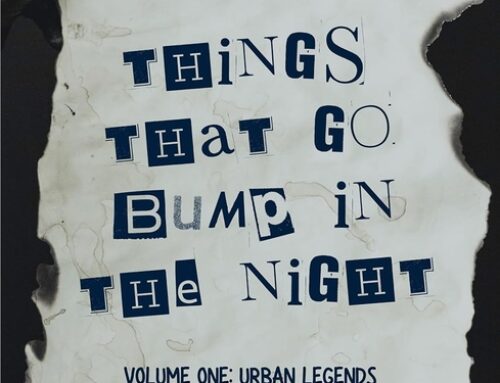
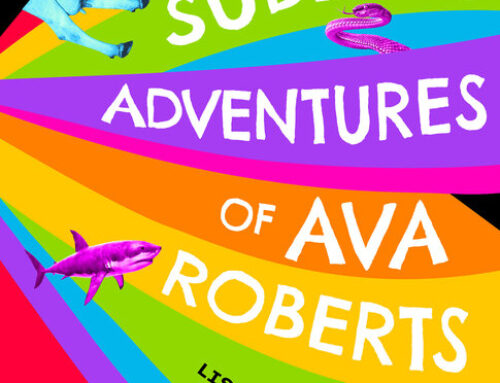

Great interview! I’ve been getting Penny’s e-mail newsletter for quite some time. Although I haven’t actually done any work with her, I have had some interactions with her and they have always been enjoyable.
Very interesting and helpful. I will make contact with Author Marketing. I really like the line “…never market a book you should market what the book can do for the reader.”